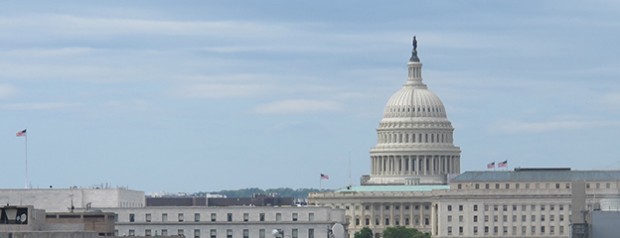Why Washington Is Still Gridlocked On A No Child Left Behind Re-Write
If you want to understand why Washington lawmakers have yet to re-write the widely-disliked Elementary and Secondary Education Act — or, as it’s more commonly called, “No Child Left Behind” — Anne Hyslop’s latest Ed Money Watch post is a must-read:
None of the ESEA reauthorization proposals are perfect. But if you actually read them – and I have – it seems like there should be more room to compromise [between Republicans and Democrats]. Everyone envisions a limited federal role! (To be clear, I’m not arguing that this is the best policy choice, only that it should make the politics easier)…
Unfortunately, with midterm elections fast approaching, lawmakers appear more concerned with scoring political points and toeing the party line than with the give and take of writing complicated policy. And waivers enable the administration to enact its preferred policies, at least temporarily, while simultaneously blaming Congress for inaction. In short, gridlock is a win-win. Despite two markups, four proposals, and thousands of pages of legislation, nobody in Washington benefits from making a deal.
As we wrote last month, top Senate Democrats, Senate Republicans, House Democrats and House Republicans each unveiled competing proposals to re-tool “No Child.” (Hyslop, a New America Foundation policy analyst, made a handy chart to compare them all.)
The release of the proposals got everyone talking for a time, but the Obama administration’s waivers have relieved 39 states — including Indiana — from NCLB’s most onerous burdens. This eases the pressure on Congress to act, as Hyslop points out.
But as we’ve also pointed out, No Child Left Behind still has defenders.
Civil rights groups point out NCLB places a focus on special education students, as well as kids from poor, minority or non-English-speaking backgrounds — if these students don’t improve, a school faces consequences under NCLB. Some worry both the waivers from and the re-write of No Child Left Behind will dial back the government’s commitment to help these under-served students. (Senate Democrats say their proposal considers these groups’ concerns.)
